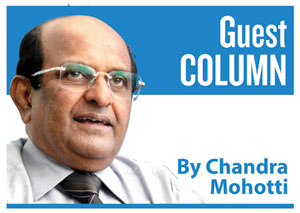Changing trends of tourism in Sri Lanka
View(s): Changing trends in tourism worldwide is a phenomenon that would continue to take place due to enormous developments in travel and hospitality. New destinations, improved facilities, advances in technology providing connectivity, information sources, and simpler reservation procedures are some of the contributory factors for these changes.
Changing trends in tourism worldwide is a phenomenon that would continue to take place due to enormous developments in travel and hospitality. New destinations, improved facilities, advances in technology providing connectivity, information sources, and simpler reservation procedures are some of the contributory factors for these changes.
In Sri Lanka, however, there have been other factors to contend with. Prior to the war the challenges were predominantly centered around the lack of sufficient accommodation, transport and infrastructure. During the three decades of the civil war and its aftermath the changes in trends in the tourism and hospitality industry has no parallel to compare with. In all spheres of activity unprecedented changes have taken place leaving all stakeholders still groping for solutions.
Terrorism hurts arrivals 
The changes that took place in the market, from a seller’s market in the¬† pre-1983 era to a total buyer’s market for an extended period of around 30 years is what caused repercussions in all the other aspects of the industry.
The main reasons for the collapse of all segments of the market was fear caused by the terrorist activity and the vast amount of negative publicity overseas.
Arrivals dropped to very low levels resulting in low occupancies which in turn necessitated the introduction of the minimum rate scheme by the government, supposedly to protect the small and medium operations. Although the minimum rate scheme decidedly had a salutary effect in general, there is the belief that due to this ruling hotel prices shot up unreasonably without a proper pricing policy based on positioning, service quality and value for money. Charges incompatible with service quality and available facilities eventually would lead to damaging the image of destination Sri Lanka as an overpriced one.
Great expectations 
Then came the much awaited but albeit unexpected end to the war in 2009.
Although there was the euphoria that tourism would boom, the many problems that had to be faced in different marketing publicity and operational demands were not envisaged by almost all concerned. Ad hoc arrangements such as the belief that tourists would anyway pour in because of the stoppage of the war had in fact a negative effect because essential deliverables were neglected. A noticeable reason for this was that professional expertise and advice in handling these new situations and the all-round changes was not available.
In marketing, new strategies need to have been adopted. Simple things like giving credence to the changed profile of the visitor as compared to the period that the war and the period preceding that need to have been addressed. There has been a definite shift in the profile of the guest aided by the choice factor being determined mainly with access to the Internet.
Identifying new markets and the potential productivity of the traditional markets and the segments they would produce need to be recognised when directing marketing efforts to ensure reasonable increases.
Professionalism 
The earlier mentioned exodus of professional staff at all levels in this industry has and is noticeably affecting service quality. Since the war ended it is mainly now that the arrivals are steadily increasing. The competent human resource availability to meet this influx is sadly lacking.  Specific training needs need to be identified instead of the traditional technical training, that too at the lowest employee level. This situation needs to be changed to include supervisory and management skills as well.
However, it is a fact that supervisory and management skills in hospitality could be acquired mostly with experience and exposure rather than be taught in classrooms. Furthermore, such experience and exposure expected needs to be under the guidance and supervision of procedures that are available mostly with reputed hotel companies. Again, with the change in market conditions training became a fashionable affair and even been thought of as the remedy for all problems. In the absence of competent trainers, hoteliers and entrepreneurs were still not prepared to treat training as an investment and but an expense, service standards unfortunately will be low. On the other hand some, claiming to be training providers, try hard to capitalise in a climate that some owners are unaware of operational needs.
International hotel chains operating in a destination offers the destination image, sales and marketing expertise, and even more importantly training and exposure facilities. It is pertinent to note that as much as six reputed hotel groups including Marriott, and Intercontinental ceased operations in Sri Lanka during the war, thus depriving the destination of the earlier said benefits. It is hoped that the new international hospitality groups that are due to open their branches in Sri Lanka soon would fill this void.
 (The writer is Senior Vice President Galle Face Hotel Management Company, Chairman Tourism Industry Skills Council and Chairman Eastern Provincial Tourism Bureau. He has also held very senior management position in international hotels like Marriott, Meridien and Intercontinental both in  Sri Lanka and overseas.) 


